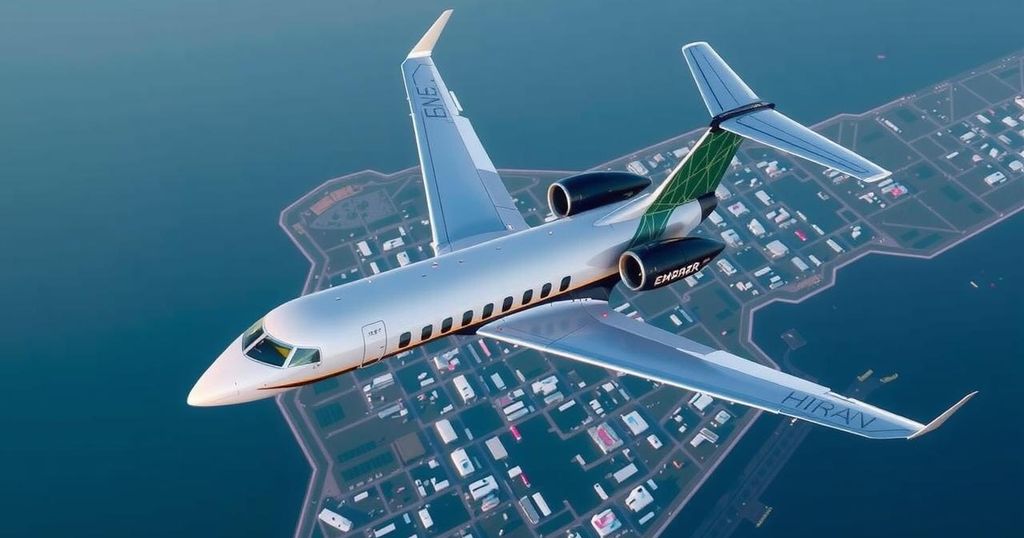Embraer Aims to Enhance E-Jet Sales in China Amid Strengthening Ties with Brazilian Government

Embraer is focusing on boosting sales of its E-Jet E2 series to Chinese airlines and enhancing supplier collaborations as Brazil strengthens ties with China. Despite optimism from Embraer officials, past efforts to penetrate the Chinese market have been limited, casting uncertainty on future sales prospects. Diplomatic developments, however, may create new opportunities moving forward.
Embraer, the Brazilian aircraft manufacturer, is intent on enhancing its sales of E-Jet E2 regional jets to Chinese buyers while fostering stronger collaboration with local suppliers. This initiative aligns with the Brazilian government’s efforts to tighten relations with China amidst deteriorating US-China ties. During an investor day on November 18 in New York City, Arjan Meijer, CEO of Embraer Commercial Aviation, highlighted China’s aviation market as a realm rich in potential, particularly for Embraer’s E-Jet E2 line. According to Meijer, the E190-E2 and E195-E2 models occupy a unique niche that is not effectively addressed by Comac’s jets, making them ideal for Chinese carriers.
Meijer stated, “I think the benefit of the E2 family is that it is truly complementary to the Chinese product. The 190- and 195-E2 are two aircraft that fit nicely in the middle.” He also referenced the E190-E2’s capabilities for operation in challenging environments, emphasizing its suitability for regions like the Tibetan Plateau. Embraer’s participation at the Zhuhai air show included a “supplier day” aimed at strengthening ties with China’s aviation sector, capitalizing on Brazil’s enhanced diplomatic relations with its largest trading partner.
Recent developments indicate that the Brazilian and Chinese governments have formalized multiple economic agreements, thereby further solidifying these ties. However, analysts like Richard Aboulafia caution against placing too much faith in political commitments as historical precedents show a gap between ambitious statements and commercial realities. While Embraer has successfully marketed earlier E-Jets to Chinese airlines, its efforts with the E2 variants have been modest, with initial certification only received in recent years.
Thus, while Embraer expresses optimism about future sales, the depth of this optimism will need to be measured against the challenging backdrop of historical negotiations and fluctuating international trade relations.
In summary, Embraer’s strategy hinges on seizing opportunities within the burgeoning Chinese aviation market while strengthening supplier relationships. However, success will ultimately depend on overcoming past challenges in penetrating this complex market.
The Brazilian aircraft manufacturer Embraer aims to increase its sales in China as Brazil fosters closer ties with the Asian nation, particularly in light of escalating tensions between China and the United States. While Embraer sees promise in the Chinese aviation sector, previous attempts to penetrate this market have yielded limited success. The E-Jet E2 series is viewed as a potential fit for Chinese airlines, but Embraer’s historical challenges raise questions about the company’s future success amid these diplomatic efforts and market dynamics.
Embraer is strategically targeting the Chinese market for its E-Jet E2 series planes, citing new opportunities as Brazil enhances its diplomatic and economic relationships with China. While the company’s optimism is clear, historical context suggests a cautious outlook on achieving significant sales volumes. As Embraer navigates this complex landscape, the actual realization of its ambitions remains to be seen amidst fluctuating international trade conditions.
Original Source: www.flightglobal.com




